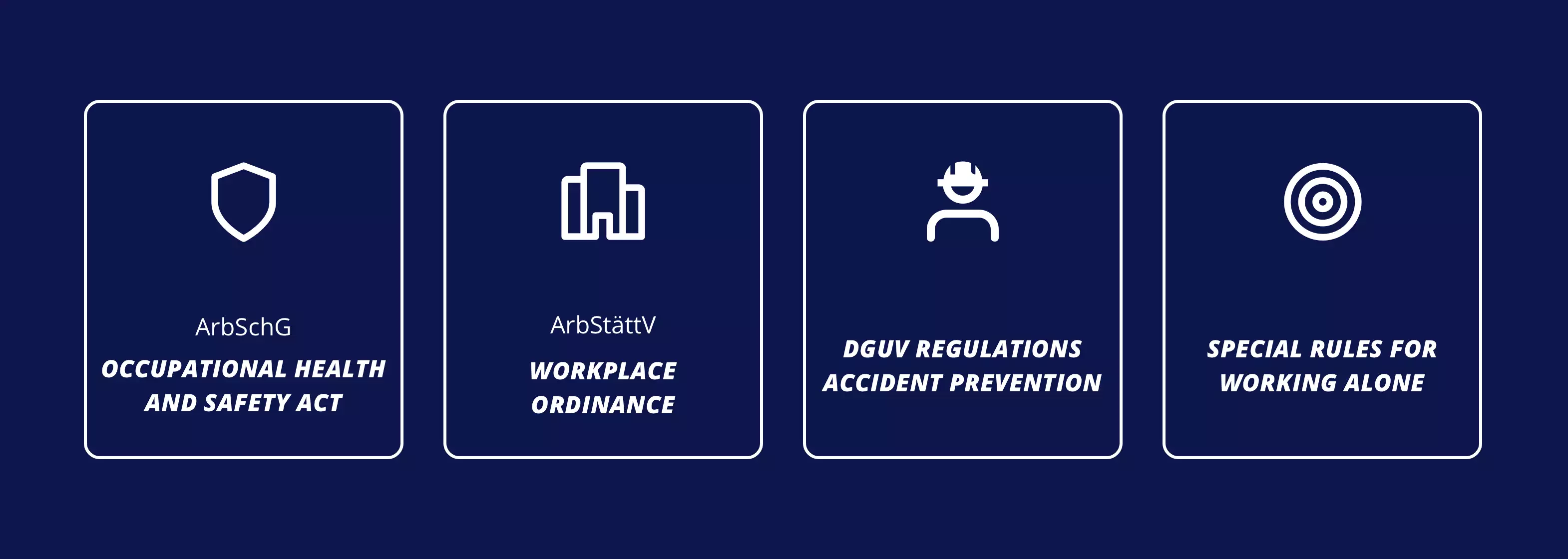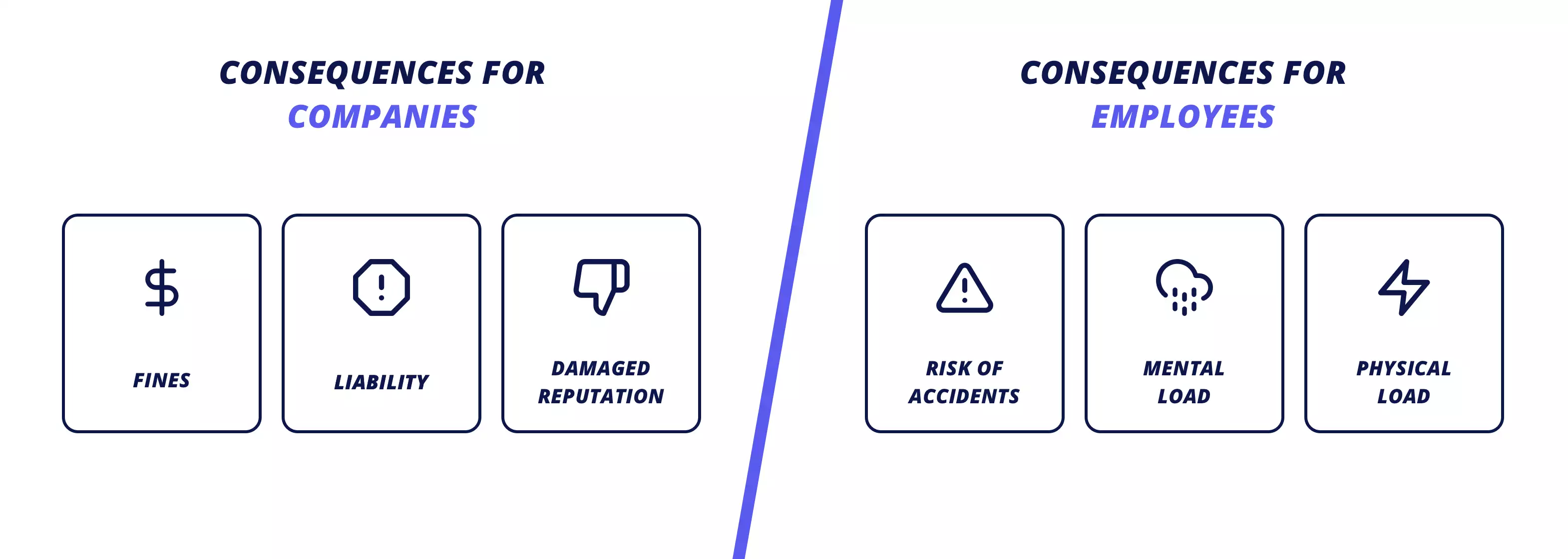Consequences of violations and digital prevention
In Germany, occupational safety is not just a question of responsibility, but a legal obligation. Companies must ensure that workplaces are designed to be safe and that employees are not exposed to unnecessary risks. The risks are particularly high in technical field sales assignments and when working alone. It is therefore all the more important to know the applicable regulations — and to implement them consistently.
The most important occupational safety regulations in Germany
The basis is formed by several laws and regulations that apply to all industries:
- Occupational Health and Safety Act (ArbSchG): Regulates the basic obligation of employers to avoid risks and to take measures to protect employees.
- Workplace Ordinance (ArbStättV): Makes demands on the design of workplaces, from lighting to indoor climate to escape routes.
- Accident prevention regulations (DGUV regulations): Are issued by professional associations and specify the obligations for various activities.
- Special rules for working alone: There are increased requirements here, such as the obligation to set up protective mechanisms such as a dead man circuit or emergency call systems.
In more detail: Risk assessment in the field

What happens if health and safety regulations are violated?
Compliance with the regulations is regularly checked by authorities such as the industrial inspectorate or professional associations. If deficiencies are identified, there is a risk of:
- Editions to eliminate the deficiencies.
- Fines sometimes at a considerable level.
- Decommissioning of workplaces or facilitiesuntil security is restored.
A violation is therefore not only a formal risk, but can paralyze the entire company.
Consequences for companies
Anyone who neglects occupational safety is taking a high risk — legally, financially and economically:
- Fines and compensation claims: Accidents at work can result in high costs, particularly if employees are injured.
- Legal liability of managers: Managing directors and persons responsible can be prosecuted personally — up to imprisonment in the event of gross negligence.
- Reputational damage: Accidents or violations of occupational safety regulations damage the trust of customers, partners and employees.
Consequences for employees
The consequences of inadequate occupational safety measures affect not only the company, but above all employees:
- Increased risk of accidents: Inadequately secured workplaces lead to more falls, injuries or even fatal accidents.
- Physical loads: Without ergonomic and safe working conditions, the risk of long-term damage increases.
- Psychological stress: An uncertain work environment can cause stress and anxiety — with negative consequences for motivation and health.

Prevention: How companies efficiently implement occupational safety
Occupational safety is not a one-time project, but an ongoing process. With the right measures, companies can reduce risks and meet legal requirements:
- Regular training: Employees must know which regulations apply and how to implement them in everyday life.
- Risk assessments: Mandatory for every workplace — they help identify risks at an early stage and take targeted countermeasures.
- Use digital solutions:
- With Entry, Field service assignments and solo work can be organized safely.
- Features such as Deadman switching, emergency notifications and location monitoring protect employees in real time.
- Automated Documentation and evaluations make it easier to comply with legal requirements and save time in administration.
Continuing: Secure solo work with app support















